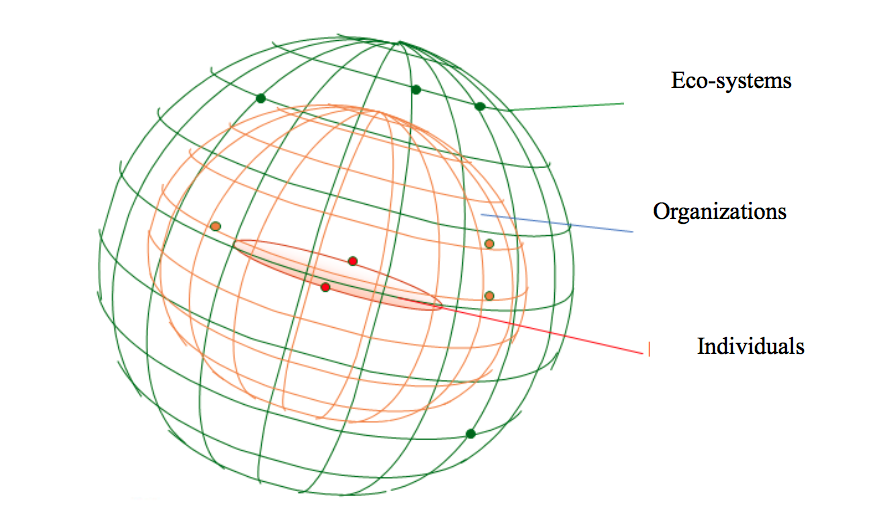Customer relationship management
Customer relationship management
Managing relationships with key stakeholder groups to increase outreach
In line with the common UN capacity development approach and firmly anchored under the ILO capacity development strategy, capacity development is understood by ITCILO as a process through which individuals, organizations and societies obtain, strengthen and maintain the capabilities to set and achieve their own development objectives over time. Capacity development may involve technical capacities (in such fields as employment, social security and health) and functional capacities (such as leadership, financial management, partnership and relationship building) and it may be implemented in several ways. While training is a common factor, capacity development can also be achieved through learning by doing, fostering relationships and partnerships, supporting research and knowledge-sharing, participation in communities of practice, South-South learning initiatives, on-the-job training, and other learning techniques that empower individuals and institutions to take charge of development challenges.
The ITCILO capacity development approach goes on distinguishing three mutually reinforcing and interdependent levels of capacity development: individual, organizational, and resulting from the enabling environment. The first means increasing the skills and abilities of individuals; the second focuses on increasing the capacity of organizations to fulfil their mandates; and the third involves improvements in policies, legislation, regulations, labour market institutions, and societal systems.
Three intervention levels for capacity-development support

This systemic approach to capacity development calls in a first step for the collection of large amounts of data about actors across system levels (refer to the Centre’s DDS for knowledge management for more information). Equipped with knowledge about the network structures of the system, the next step is to determine actions for more effectively managing relationships with key stakeholder groups. The Centre’s DDS for increasing outreach of organizations aim to address this goal, by facilitating access of institutional partners to IT-enhanced technical advisory services on Customer Relationship Management (CRM).
A closer look at the CRM advisory services of the Centre
CRM is the combination of practices and technologies to manage interactions with stakeholders of the organization, whether paying customers, beneficiaries of subsidized services or institutional partners. The goal is to increase service outreach, improve service relationships and support stakeholder retention. CRM systems compile stakeholder data across different points of contact between the capacity development service provider and the stakeholder, which could include the organization’s website, telephone, live chat, direct mail, promotional materials and social networks. CRM systems can also give staff tasked with service promotion or partnership development detailed information on the respective stakeholder, including the history of the relationship and their needs and preferences.
The CRM services of the Centre comprise of training in CRM strategy development, technical support to set up a CRM software application and follow-up advisory services to operate and maintain the system.
The training in CRM strategy development will usually involve a two-three day workshop, delivered on site of the organization. During the workshop, the following questions are addressed:
- Why are we doing this? Cascading operational-level objectives from higher-level strategy
- Which are the services offered that can be promoted? Classification of the services offered by the organization
- Who is the target group? Segmentation of the stakeholder universe
- How do we measure progress? Indicators and performance targets to monitor CRM performance
- What are the current point of contacts? Establishment of the service channels
- Which information do we have? Identification of the available and missing data and insights
- How are we going to do this? Determination of segment-specific outreach activities
- When and with what resources? Timeframe and activity budgets.
The Centre works with a range of CRM applications, customized to the needs and the budget of the institutional partners. For example, for Employers and Business Member Organizations the Center adopts the open source SuiteCRM application. During the CRM strategy workshop, institutional partners are introduced to the spectrum of IT solutions available, including open-source applications and freeware.
The CRM follow up advisory services of the Centre support the organization to move from design stage to implementation stage, and to set up a tailor-made system aligned with budget and ambition level. Pending the needs of the client, these advisory services might be delivered in partnership with a specialized IT service provider.
Example of a CRM data driven approach
Since 2013, the Programme for Employers Activities of the ITC ILO has invested in the development of a CRM software to facilitate membership data management, specially designed to meet the needs of national and sectoral employers' and business member organizations (EBMOs).
The aim of this DDS is to support voluntary EBMOs to be more professional in the way they manage their membership data, their services’ offer, their reporting to governance bodies and their financial management, notably when it comes to subscription fees. Once installed, the CRM offers concrete added value to EBMOs. While a membership database is an essential tool for EBMOs in their daily management, few organizations have the financial and technical resources to develop one matching their requirements. The software developed by the ITCILO is a ready-made solution which can be further customized locally. In addition to the tool itself, the ITCILO project offers EBMOs to train their staff on how to use the tool, the installation of the software, certain customization as well as a helpdesk after the installation.
To date, 60 APEX Employers' and Business Member Organizations from all continents have benefited from the ITCILO CRM project and are using it in their daily operations. In some countries, the national EBMOs have decided to transfer their acquired knowledge and expertise with the system to their sector associations in a cascading effect benefitting a wider business community.
The software is available in English, Spanish and French. For more information on the project and to know how your Employers' and Business Member Organization can participate, go to